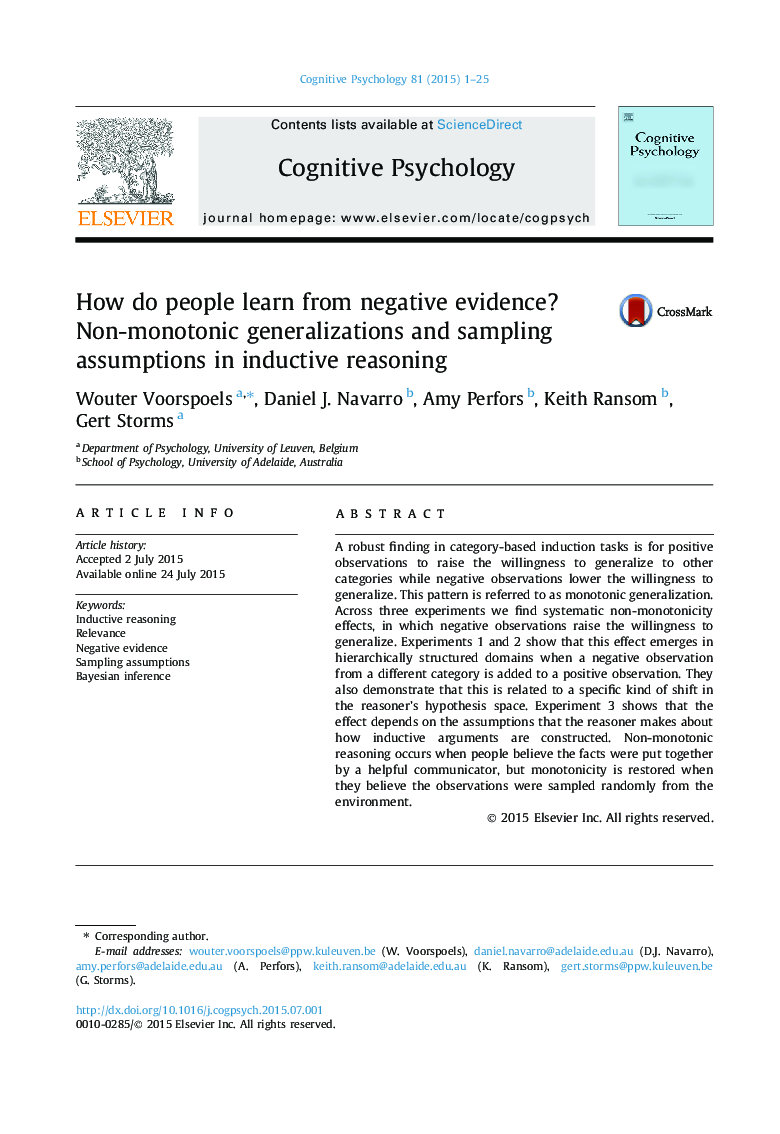| Article ID | Journal | Published Year | Pages | File Type |
|---|---|---|---|---|
| 916820 | Cognitive Psychology | 2015 | 25 Pages |
•We examine category-based inductive inference involving negative observations.•We find that negative observations can raise the willingness to generalize.•This occurs when a reasoner assumes that the observations were selected to be helpful.•We propose a theoretical account, in form of a Bayesian model.•The model explains when and why negative observations can facilitate generalization.
A robust finding in category-based induction tasks is for positive observations to raise the willingness to generalize to other categories while negative observations lower the willingness to generalize. This pattern is referred to as monotonic generalization. Across three experiments we find systematic non-monotonicity effects, in which negative observations raise the willingness to generalize. Experiments 1 and 2 show that this effect emerges in hierarchically structured domains when a negative observation from a different category is added to a positive observation. They also demonstrate that this is related to a specific kind of shift in the reasoner’s hypothesis space. Experiment 3 shows that the effect depends on the assumptions that the reasoner makes about how inductive arguments are constructed. Non-monotonic reasoning occurs when people believe the facts were put together by a helpful communicator, but monotonicity is restored when they believe the observations were sampled randomly from the environment.
